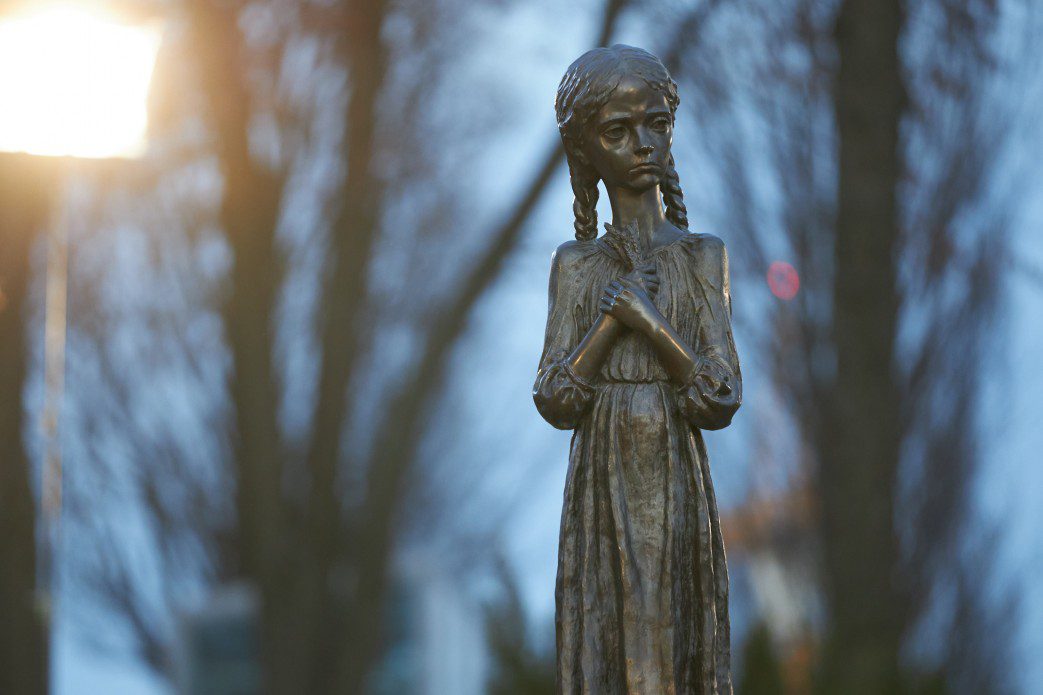Award granted to World Food Programme today signals that using starvation as a weapon of war is no longer tolerable.
Boston, MA/The Hague, The Netherlands – October 9, 2020 – Global Rights Compliance (GRC) and the World Peace Foundation (WPF) at The Fletcher School (Tufts University), partners in the project “Accountability for Starvation: Testing the Limits of the Law” congratulate the World Food Programme for being honored as the 2020 receipient of the Nobel Peace Prize.
“The World Food Programme is not simply a charity feeding those who are hungry because of harvest failure or unemployment: ,” Alex de Waal (WPF) states, “it is an organization dealing with the human consequences of war and repression, and the political and military decisions that cause starvation.”
“The Nobel Committee, in honoring WFP, has recognized that starvation is contrary to peace,” explained Wayne Jordash Managing Partner of GRC, “When used as a weapon of war, starvation is also prohibited in many contexts by international law. It is time to advance the agenda of criminalizing this practice”
The award of the Nobel Prize to WFP continues international momentum against the use of mass starvation as a weapon of war. The past years have witnessed historic changes in international policy and law. On December 6th, 2019, at the 18th Assembly of State Parties to the Rome Statute of the International Criminal Court voted unanimously to an amendment that makes starvation a war crime in non-international armed conflicts. The vote came in the form of an amendment to the Rome Statute, tabled by Switzerland in August 2019 and supported by GRC. It means that the crime of starvation can now be applied to the context where it most frequently occurs: during civil wars. The Rome Statute already prohibits starvation in international armed conflicts—now it is a crime in all armed conflicts.
Another key catalyst was the adoption of UN Security Council Resolution S/RES/2417 (UNSC 2417), on 24 May 2018, steered by The Netherlands, during its term as president of the UN Security Council. This Resolution called attention to the nexus between armed conflict and famine today, and “strongly condemn[ed] the use of starvation of civilians as a method of warfare.”
Throughout this period, the World Peace Foundation at The Fletcher School and Global Rights Compliance have campaigned against starvation as an instrument of war, combining our expertise on law, conflict and famine. The project has produced key resources documenting acts of starvation in South Sudan, Syria and Yemen, and providing instruction so that others can leverage the law to end starvation.
GRC’s ‘The Starvation Training Manual’– An International Framework Guide to the Law of Starvation‘ is a unique toolkit designed for a wide audience including: professional investigators, human rights defenders, journalists, civil society organisations, academics, the military police officers, and humanitarian actors, interested in being able to identify the deliberate use of starvation, strengthen protection strategies and insulate their operations, reporting and responses. Mass starvation is the product of policy, not natural hazards, and famine will best be prevented by calling its perpetrators to account.
Contacts:
Bridget Conley, World Peace Foundation at The Fletcher School (Medford, MA)
Catriona Murdoch, Global Rights Compliance (The Hague)
E: catrionamurdoch@globalrightscompliance.co.uk
About Wayne Jordash and Catriona Murdoch at Global Rights Compliance
Wayne Jordash QC is an internationally recognised expert in the global network of international tribunals and courts and international humanitarian law (‘IHL’) and the managing partner of Global Rights Compliance. He is ranked as a leading silk in both the Legal 500 and Chambers and Partners, where he was recommended as “one of the world’s leading international criminal lawyers”. Catriona Murdoch leads the “Accountability for Mass Starvation: Testing the Limits of the Law” project and is an international criminal and human rights law expert. Called to the Bar of England and Wales she is ranked as a leading junior in both the Legal 500 and Chambers and Partners where she was recommended as “star of the future”. International legal advisory firm, Global Rights Compliance, specialises in services associated with bringing accountability for violations of IHL and international human rights law.
About Alex de Waal and Bridget Conley, at the World Peace Foundation at The Fletcher School
Alex de Waal is Executive Director of the World Peace Foundation and a Research Professor at The Fletcher School. Considered one of the foremost experts on famine, his scholarship and practice has also probed humanitarian crisis and response, human rights, the Horn of Africa, HIV/AIDS and governance in Africa, and conflict and peacebuilding. Bridget Conley is Research Director at WPF, and has published on human rights, genocide, atrocities and famine. The World Peace Foundation is an operating foundation affiliated solely with The Fletcher School, that provides intellectual leadership on issues of peace, justice and security.



